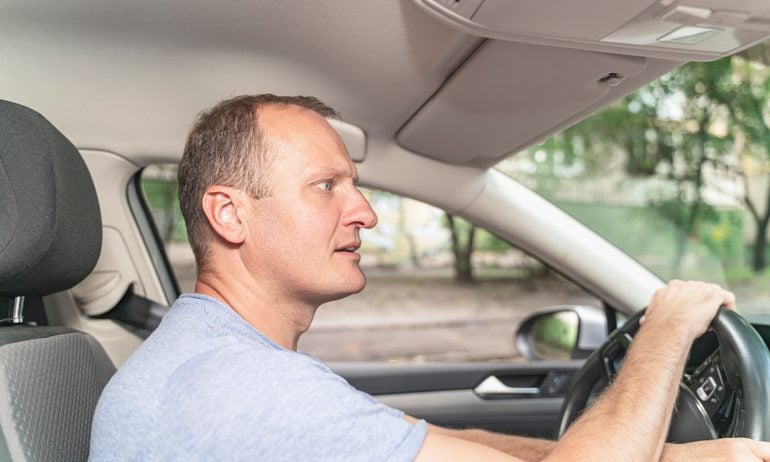Totaled Car and Insurance: What You Need to Know
If your car is totaled, you may be able to get a check for its actual cash value from the insurance company.

Many, or all, of the products featured on this page are from our advertising partners who compensate us when you take certain actions on our website or click to take an action on their website. However, this does not influence our evaluations. Our opinions are our own. Here is a list of our partners and here's how we make money.
Insurance companies declare a car totaled when repair costs are more than what it's worth.
The payout for a totaled car depends on your car insurance coverage and the accident.
If you’re covered, insurance will pay an amount equal to your car’s actual cash value, minus your deductible.
When you find out your car is totaled, you may have a bunch of questions racing through your head: Is my car covered by insurance? How much will insurance pay for my totaled car? Who gets the insurance check when a car is totaled?
Depending on your car insurance coverage and the accident, there are a few things that can happen next.
Here’s what you need to know when you have a totaled car.
See what you could save on car insurance
Easily compare personalized rates to see how much switching car insurance could save you.
What does it mean when your car is totaled?
Your car is totaled if the cost to repair it is more than it’s worth. In some states, a car is considered totaled if the cost of repairs is more than a percentage of the car’s value, such as 75%.
So, if your car was worth $15,000, and repairs after an accident are expected to be north of $15,000 — or close to it, depending on your state — your car would be considered totaled, or a total loss. It wouldn’t be worth fixing since you can buy a similar vehicle for less than or close to what it would cost to restore it to its previous condition.
Who decides when a car is totaled?
Insurance companies ultimately decide when a car is totaled. They do this by sending a claims adjuster to assess a vehicle’s damage, estimate repair costs and compare those costs with the value of the car in its pre-accident condition.
If an insurance company decides a car isn’t worth fixing, they’ll label it a total loss.
Is my totaled car covered by insurance?
If an at-fault driver totals your vehicle, that driver’s insurance company will normally pay for the damage caused by the accident.
But what if the other driver was uninsured, or what if you caused the accident? This is where your own car insurance comes into play. However, the types of car insurance coverage you have and the situation that caused the accident determine if and how you’re covered.
There’s a chance you’ll be on your own to pay for a new car if you don’t have the right coverage types on your policy. For example, if you totaled your car and only have liability insurance, your vehicle won’t be covered since liability insurance only pays for damage to others and their property. But if you have full coverage insurance, you may have the proper coverage types to cover your totaled car, no matter who caused the accident.
Here are some common situations and coverage types that may apply when your car is totaled.
Situation | Coverage type that may apply |
|---|---|
An insured driver totals your car. | The other driver’s liability car insurance. |
An uninsured driver totals your car. | Your uninsured motorist coverage or collision insurance. |
You crash your car into another car or object, totaling it. | Your collision insurance. |
Someone totals your car and drives away. | Your collision insurance or uninsured motorist coverage. |
Your car is totaled by a non-traffic related event, like severe weather, a fallen object or hitting an animal. | Your comprehensive insurance. |
While liability car insurance is required in nearly every state, uninsured motorist coverage, collision insurance and comprehensive insurance may be optional depending on where you live and whether you own your car. If you’re not sure which coverage types you have on your policy, check your car insurance declaration page or call your insurer.
What about gap insurance?
If you total a new vehicle that you were still paying off, what you owe on it may be more than what your car was worth at the time of the accident. This is where gap insurance comes in handy.
Gap insurance pays the difference between what your car is worth and how much you still owe on it when it’s totaled or stolen. Because new cars generally lose value faster than most people pay down a car loan, this coverage supplements a comprehensive or collision insurance payout, which can only be as high as your car’s value.
Some lenders and lessors require you to get gap insurance when you buy or lease a new model vehicle. If you don’t have it, you’re responsible for paying for any amount you still owe out of pocket.
Learn more about the different types of car insurance by using our tool below:
How much will insurance pay for my totaled car?
Insurance will pay an amount equal to the totaled car’s actual cash value. This means that the payout will be what you might expect if you sold your car in a fair transaction just before it was totaled.
Insurance companies use a variety of factors to assess a car’s value, including its age, make, model and miles driven. However, the final payout might depend on a couple of additional factors:
Deductibles. You might have to subtract a deductible from an insurance payout depending on the accident. A car insurance deductible is the amount you pay before insurance covers the rest. For example, if the actual cash value of your car is $8,000, but you have a $1,500 deductible, your insurance company will write a check for $6,500.
New car replacement insurance. If the car totaled was a few model years old and you have new car replacement insurance, you’ll receive a payout to cover the cost of a brand new car of the same make and model, minus your deductible.
If you own your car outright, the insurer will send the payment directly to you. But if your car is financed or leased, the lender or leaseholder will get paid first. Any remaining money will go to you.
Wondering what your car is worth? Check out free online pricing guides like those from Kelley Blue Book or the National Automobile Dealers Association, or read NerdWallet’s car value guide to learn more.
What if my car is worth more than insurance is willing to pay?
If you’re convinced your car is worth more than what insurance is willing to give you for your totaled car, you may be able to ask for a bigger payout.
Just be prepared to make your case for why it’s worth more. For example, you may be asked to hand over service records or evidence of special features or parts that make your car unique. You might even have to pay to get an independent appraisal of your vehicle.
Consider taking a video of the outside and inside of your car once a year. That way, you’ll have evidence of your car’s previous condition and special upgrades if you get into an accident and your car’s damaged beyond repair.






